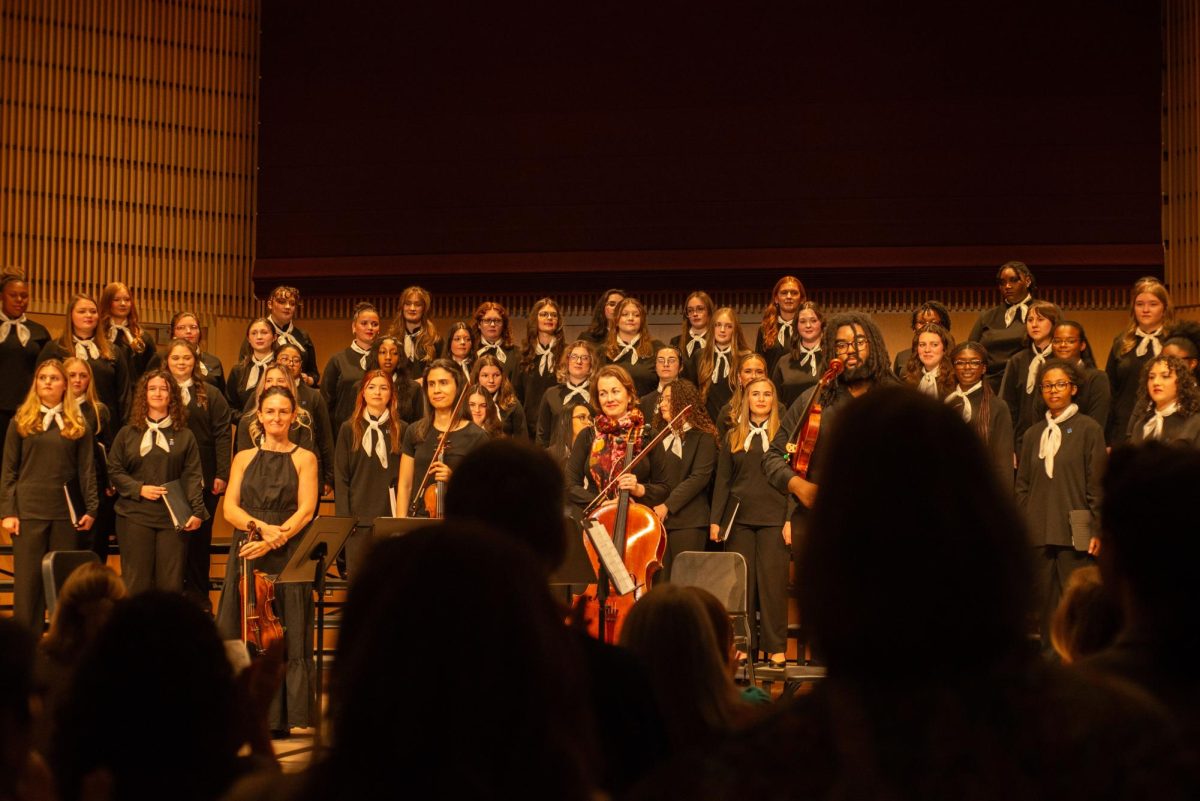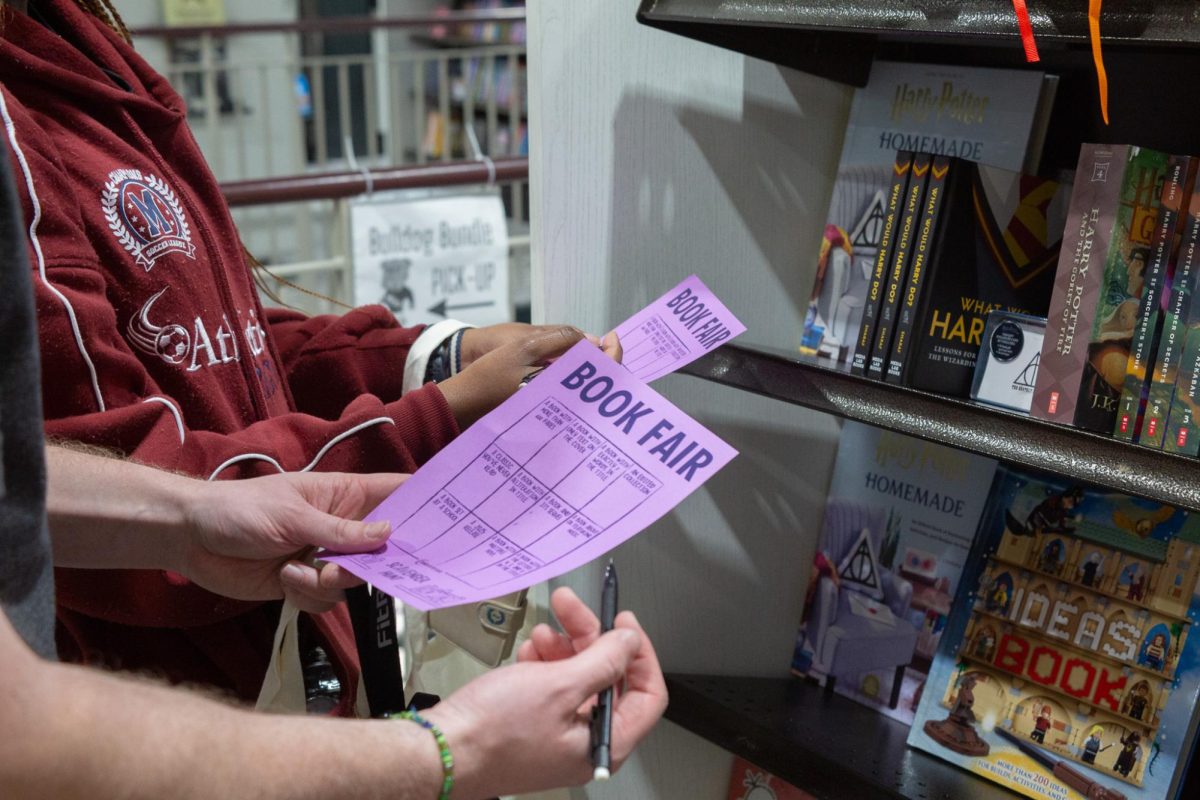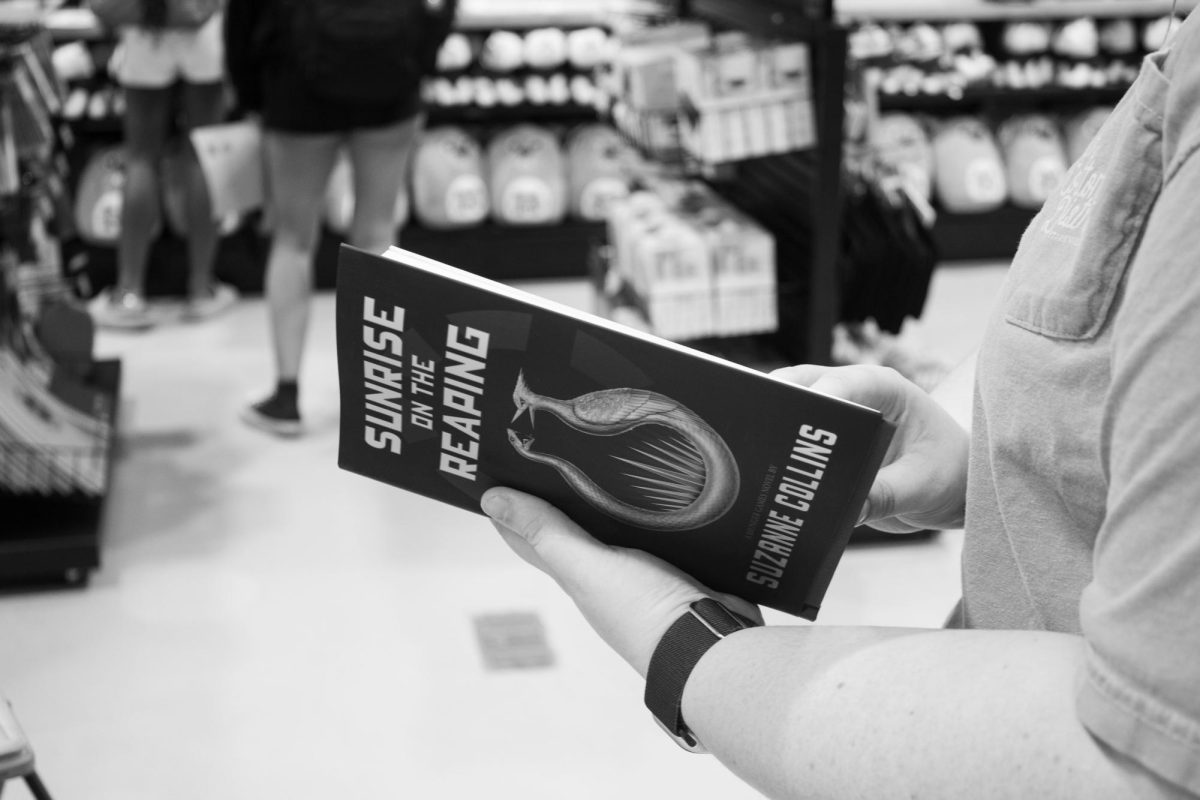The Mitchell Memorial Library is the host site for the Southern Literary Trail’s “Famous Types” exhibit, open now through Sept. 24. The exhibit composed of nine pieces from the Soboroff Typewriter Collection, features the personal typewriters of a variety of renowned literary and cultural magnates.
The original owners of the typewriters featured in the exhibit include Ernest Hemingway, Maya Angelou, Ray Bradbury, Truman Capote, George Bernard Shaw, Tennessee Williams, Gore Vidal, John Lennon and Tom Hanks.
Steve Soboroff, the owner of the collection, is a Los Angeles-based civic leader with an impressive resume of accomplishments. He was named Harvard Business School’s Business Statesman of the Year.
Soboroff’s fascination with typewriters began at a Soethby’s auction in 2005, where he purchased a typewriter previously owned by Jim Murray, one of the foremost American sports journalists of the 20th century. His future purchases of typewriters belonged to icons such as Joe DiMaggio, Marilyn Monroe and Barbra Streisand. His collection now includes over 30 typewriters previously owned by renowned literary and cultural figures.
Sarah McCullough, the coordinator of Cultural Heritage Projects at the Mitchell Memorial Library, said because “Famous Types” is a private collection, its its display at the MSU library a rare opportunity. Generally, the collection is exhibited on the West Coast or in larger metropolitan areas. Other Southern Literary Trail exhibit sites will include Georgia College and the University of Alabama.
“It’s an incredible experience to see these instruments that belonged to people who created some of the greatest works of the 20th century,” McCullough said.
Bonnie O’Neill, graduate professor of English at MSU with a specialization in research on literary celebrities, said this display provides a special access to these literary celebrities by seeing the tools they used to create their works.
McCullough said writers of the past were attached to their typewriters in a way modern computers cannot replicate. As such, the display provides a unique glimpse into the spirit of creation behind the famous works which came from the typewriters.
McCullough said typewriters also had a certain rhythm to them which is absent in modern computers, and even longhand writing. Hemingway, widely regarded as a master of dialogue, said the sound of the typewriter allowed him to “capture the natural rhythms of speech.” The importance of typewriters to these authors, and especially to Hemingway, is summed up in his famous quote.
“There is nothing to writing. All you do is sit down at a typewriter and bleed,” Hemingway said.
The very typewriter upon which Hemingway bled is sitting in the John Grisham room at MSU’s library.
To McCullough, Tennessee Williams’ typewriter stood out the most because of MSU’s proximity to his hometown of Columbus.
Williams often spoke fondly of Mississippi during his life, making the display of this collection in Mississippi even more fitting.
“Home is where you hang your childhood, and Mississippi, to me, is the beauty spot of creation,” Williams said.
To think Williams could have written those words on the 1936 Corona Junior typewriter on display in the exhibit, is extraordinary.
Next to each typewriter is a placard with information on the previous owner and the significance of the typewriter. For instance, the Imperial Good Companion Model T typewriter on display was used by John Lennon in high school to write song lyrics for the band Quarrymen, the precursor to the Beatles.
Both McCullough and O’Neill agree students should not miss such a rare and incredible opportunity to connect with such a remarkable group of writers and cultural icons.
Soboroff, perfectly sums up the value and intrigue of the exhibit in a quote displayed in the exhibit.
“The idea that geniuses sat there and accomplished what they accomplished on these typewriters… it gives me chills,” Soboroff said.
Mitchell Memorial Library hosts ‘Famous Types’ exhibit
About the Contributor

Hannah Blankenship, Former Editor-in-Chief
Hannah Blankenship served as Editor-in-Chief of The Reflector from 2021 to 2022.
She also served as the Managing Editor from 2020 to 2021 and as the News Editor from 2019 to 2020.
Hannah was named College Journalist of the Year at the 2022 Southeastern Journalism Conference.
0
Donate to The Reflector
Your donation will support the student journalists of Mississippi State University. Your contribution will allow us to purchase equipment and cover our annual website hosting costs.
More to Discover




















